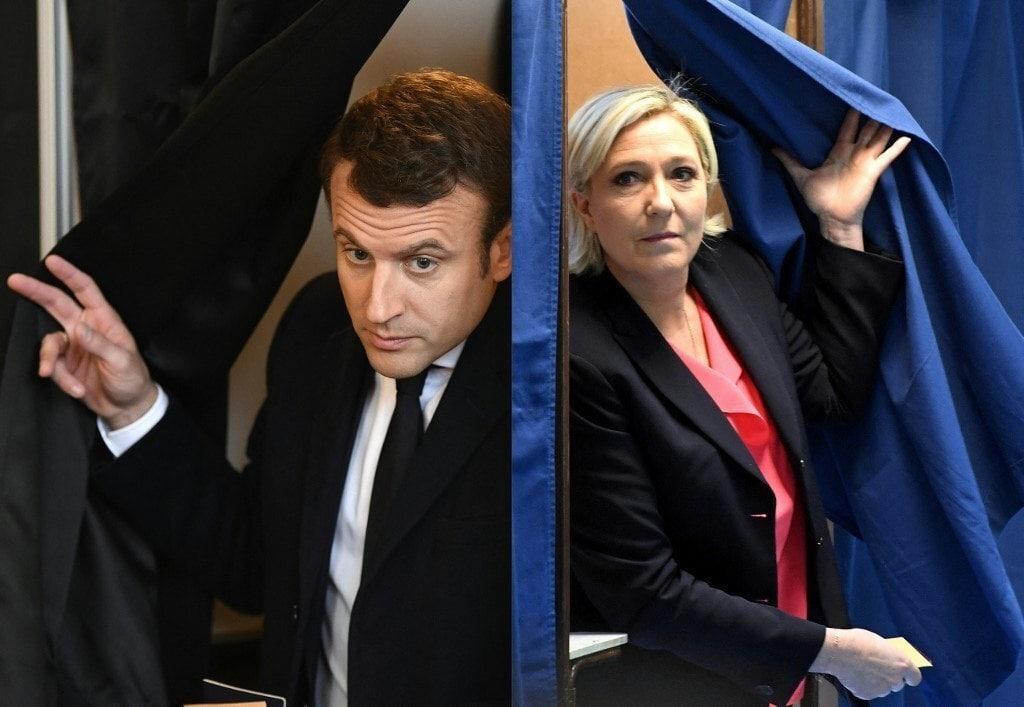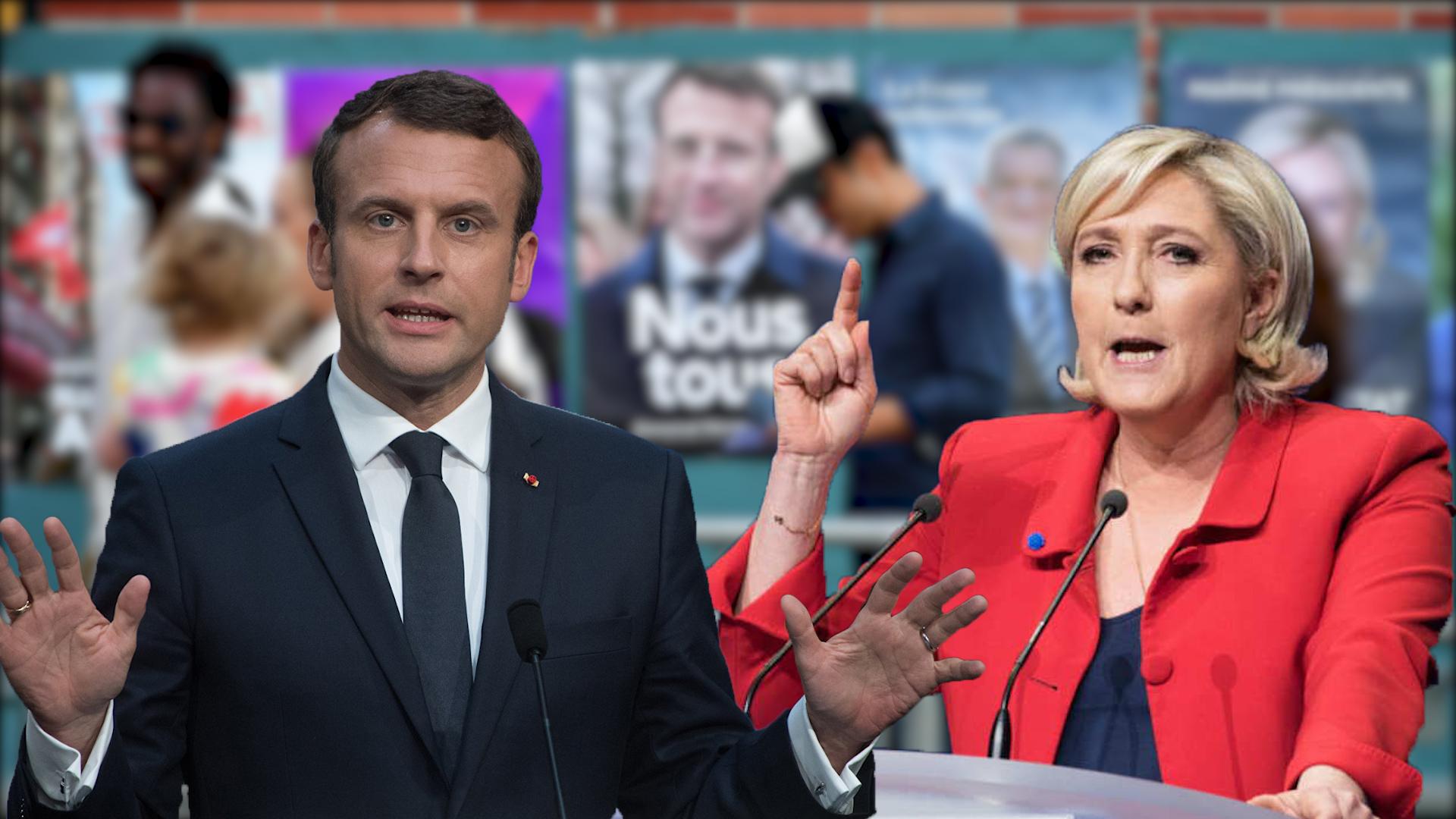“You can feel a shift”: will the French be lured by Le Pen? Article by The Guardian
UK-based The Guardian has published an article highlighting the upcoming elections to the European Parliament. Caliber.Az reprints the article.
Céline, a civil servant and administrator in several French government ministries, used to keep quiet about the fact that she voted for the far-right, anti-immigration party of Marine Le Pen. “I couldn’t talk about it at work; people would say: ‘You’re a fascist.’ It was frowned upon – it was almost a sackable offence,” said the 68-year-old, who retired three years ago.
But today, even in her hometown of Boulogne-Billancourt, west of Paris, where the largely well-off residents have been historically closed to the far right, and voted 83% for the centrist Emmanuel Macron in the 2022 presidential final round, Céline has noticed a shift in the public mood. Across France, Le Pen’s far-right National Rally (Rassemblement National (RN) is polling at a historic high of about 33 per cent in Sunday’s European elections, more than double Macron’s grouping on about 16 per cent. National politics has become increasingly focused on the far-right’s progress to the next presidential race in 2027, and whether anything will be capable of holding it back.

“Today, there’s more of a sense of people getting onboard with Le Pen’s ideas – it’s as if there has been a lightbulb moment,” Céline, who did not want to give her surname, said. “You don’t see immigrants here, but 10km away in the Paris banlieue you do. I live a comfortable life, but I have my eyes open, and it’s revolting out there for people who don’t have much money. The problem is immigration; people feel invaded.”
Part of Boulogne-Billancourt, with its largely well-educated, urban professional electorate, lies within the parliamentary constituency of the young prime minister, Gabriel Attal, 35, who was appointed less than six months ago to invigorate Macron’s difficult second term. Attal’s main mission, as one Elysée official put it, was to “fight against populism” and counter Le Pen’s increasingly popular European election candidate, Jordan Bardella, 28.
But when Attal returned to Boulogne-Billancourt last week to address a rally in a local theatre, it was amid a certain mood of panic. “Does France, a founder member of the EU, really want to be the country that sends the biggest battalion of far-right apparatchiks to the European parliament?” Attal asked.
The National Rally’s high score in European elections is not new. From the mid-1980s, it has traditionally done well in European votes and topped the poll in France in the last two European elections, in 2014 and in 2019. One major difference this time is that the rise of other far-right parties across the EU can give the French equivalent more international clout. A second is that Bardella’s lead against Macron’s group is expected to be big – potentially more than 10% – whereas last time it was less than 1 per cent. This would show not just that the far right has grown, but that Macron’s support has considerably fallen.
Hervé Marseille, a veteran of the local centre right, warned at the Boulogne-Billancourt rally that Le Pen’s far right was now certain to make it to the second round of the 2027 presidential election, raising the question of who could stop her. Macron, who promised at his election in 2017 there would be “no more reason to vote for extremes” but has seen Le Pen’s vote rise, cannot stand again for president, and has no obvious successor. The next three years, including municipal elections in 2026, will be dominated, therefore, by politicking over the place of the far right.
“Marine Le Pen has succeeded in her party’s aim of making this European election a referendum for or against Macron,” said Luc Rouban, of the Cevipof political research centre at Sciences Po university.
The pro-Europe government argues that it has lowered unemployment and shielded French people from the worst of inflation, the Covid crisis and war in Ukraine. But Le Pen supporters are voting on Sunday largely out of concern for national issues: the daily challenge of making ends meet, immigration, access to public services, and the feeling of insecurity and crime.
The National Rally is already the biggest single opposition party in parliament with 88 MPs, and no longer wants to leave the EU, which makes it harder to counter. Even with Macron’s top European candidate, Valérie Hayer, referring to the Front National’s questionable roots and its co-founder Pierre Bousquet, who served in the Waffen SS, the National Rally, renamed in 2017, has seen its support grow.
“The double approach of fighting them by saying: ‘Look how scary they are’ and ‘Look how incompetent they are’, in my view won’t work any more,” said Édouard Philippe, a former prime minister to Macron, in a recent television interview.
In Boulogne-Billancourt, Céline is far from alone in voting RN. One former car company manager in his early 80s – who did not want to give his name – first noticed what he called “the wind of change” at his golf club. “All my golf club friends are talking about voting for the National Rally,” he said.
He and his wife, a retired middle-school French teacher, lived in what he called a “nice new-build flat” and spend six months of the year in Spain. “Emmanuel Macron turned me to the National Rally, because he’s done nothing about crime and insecurity, we’re invaded by immigrants,” he said.
Clara, 72, retired from events management, is part of the 8 per cent to 10 per cent of former Macron voters who are expected to vote Bardella in the European elections, in what pollsters have called an increasingly porous French electorate. “It’s the biggest anti-Macron message I can send,” she said, not wanting to give her real name. Her son, aged 40, had recently been sacked from his job in TV, which had worried her about the future.

Polling shows that two voter groups who formerly stayed away from Le Pen’s party have begun to slowly shift. Significantly, there is a slight increase in support for Bardella by more highly educated, higher-earning professionals, whereas Le Pen’s voter base used to be defined by people who spent a shorter time in education. People aged between 60 and 70 – who were once put off by the party founder, Jean-Marie Le Pen, seeing his movement as a danger to democracy that promoted racist, antisemitic and anti-Muslim views, as well as being bad for the economy – are now beginning to turn to Bardella.
Leafleting in a suit and tie at a Boulogne-Billancourt market, Christophe Versini, a legal expert, parliamentary adviser and local delegate for the National Rally, said: “When you see that we’re progressing even in départements like the Hauts-de-Seine, which includes Boulogne-Billancourt, that means that no territory in France is beyond us.” Canvassing with him, in chinos and a polo shirt, was Florian, 23, a master’s student at a top engineering graduate school.
The combined total of all far-right parties in France participating in the European elections – including Reconquête, whose list is led by Le Pen’s niece Marion Maréchal – could reach 40%. Polls show that French young people aged 18 – 29 are likely to massively abstain in the European ballot but, when they do vote, it is primarily for Le Pen. “We will clearly have to listen to what the French are saying and learn from it,” Macron’s parliament leader, Yaël Braun-Pivet, has said. The abstention rate in France is expected to be about 50 per cent.
The sociologist Félicien Faury recently published Ordinary Voters, an in-depth study of the reasons behind a rapidly normalising far-right vote. “There are always two main motivations,” he said. “First is the question of the cost of living, and more broadly, economic security. Then there is the question of a rejection of immigrants and immigration. And broader than that is a rejection of, and hostility towards, racial minorities.”
On the left, the commentator and MEP Raphaël Glucksmann, running on a combined ticket for his European group, Place Publique, and the Socialist party, is winning over centre-left former Macron voters and polling at about 14%. He promised to show the “democratic and pro-European left is not dead”. Sara, 39, who worked in digital communications in Boulogne-Billancourt, and canvassed for Glucksmann said: “It feels new to be putting social democracy back on the table.” But broadly, the French left remains divided, with Jean-Luc Mélenchon’s La France Insoumise polling at about 8%.
Alain, 35, a French-Congolese volunteer first aider, had been campaigning for Macron’s centrist grouping on low-income council estates outside Paris, in Evry and Grigny. He felt Le Pen’s party, “whose only arguments are hatred and division”, could be beaten easily in France if young people in the ethnically diverse suburbs turned out to vote.
But, at a campaign rally in Aubervilliers, another member of Macron’s party, a financial consultant who had moved from Mali to France for his postgraduate studies, was concerned. “You can feel a shift. Far-right propaganda is gaining ground. One French friend of mine, a manager, is increasingly interested by Le Pen’s party and has started making comments he never would have done four years ago. You can feel people’s growing tendency to think their problems are caused by the immigrant next door.”








